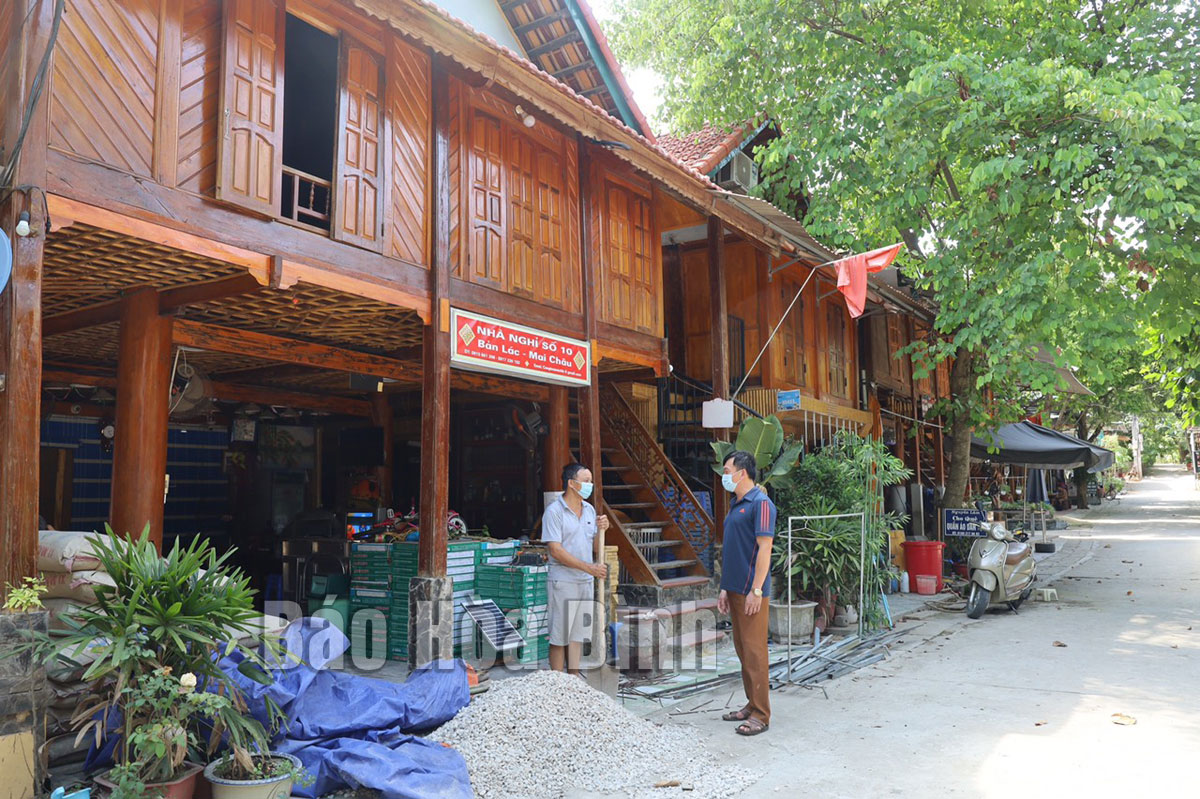
(HBO) – Tourism activities and craft villages in Mai Chau district are experiencing a period of stagnation as a result of the COVID-19 pandemic’s impact. A number of households earning their living from tourism and traditional crafts are struggling due to unstable livelihoods and income.

During the period of activity suspension, households
working in community-based tourism in Lac village of Chieng Chau commune (Mai
Chau district) have been upgrading infrastructure to prepare for tourism
resumption.
Travellers absent in community-based
tourism village
Lac village in Chieng Chau commune is a famous
community-based tourism village. In the peak season, it welcomed around 1,500
visitors, both Vietnamese and foreign ones, per day. But that was the time
before the COVID-19 pandemic started, according to village leader Ha Cong Hong.
Ha Cong Tan, owner of a community-based tourism
hostel in Lac village, has suspended receiving tourists since early May.
He said the households running hostels like his
have had to halt activities to carry out anti-pandemic measures. Many have
temporarily closed their establishments.
To prepare for tourism reopening once COVID-19
is brought under control, some households have been upgrading accommodation
facilities, he noted, adding that his family is also expanding infrastructure
to welcome travellers back when possible.
Traditional craft villages face numerous
difficulties
Previously earning incomes of 3 million - 4
million VND (131 - 175 USD) per month, workers of the Chieng Chau brocade
making, service, and tourism co-operative is now unemployed. To support
families, some of them have had to seek jobs at tailor shops or companies in
the Chieng Chau industrial cluster, but the new jobs are not stable.
Ha Thi Lieu, deputy head of the culture and
information division of Mai Chau, said all tourism business and accommodation
establishments across the district have suspended operations to prevent the
spread of COVID-19, affecting about 1,200 workers of hostels, community-based
tourism facilities, and craft villages.
She noted aside from requesting the serious
implementation of anti-pandemic measures, local authorities have also
encouraged households to improve services and upgrade infrastructure. The Mai
Chau People’s Committee has ordered specialised agencies to list people
eligible to benefit from the Government’s aid package of 26 trillion VND for
pandemic-hit enterprises and people, including those working in the tourism
sector.
A diverse chain of eco-tourism and resort destinations concentrated in Hoa Binh city and the districts of Tan Lac, Da Bac, and Luong Son… Along with the launch of several key high-quality resort tourism projects, these developments have reshaped the landscape and enhanced the appeal of Hoa Binh as a travel destination.
Boasting diverse terrain, a mild climate, and rich natural resources, Cao Phong district is increasingly asserting its place on Vietnam’s tourism map, attracting both domestic and foreign visitors. The district is renowned for its stunning landscapes, majestic mountains, a crystal-clear hydropower lake, and the unique cultural identity of local ethnic groups.
With its pristine landscapes, unique cultural heritage of Muong ethnic minority, and an expanding range of visitor experiences, Tan Lac district of Hoa Binh has fast become a captivating destination for both domestic and international tourists.
Until now, Sung village in Cao Son commune, Da Bac district remains the only Dao ethnic community in Hoa Binh province to develop a community-based tourism model. Beyond its untouched natural landscapes, cultural identity serves as the cornerstone attraction for visitors.
Alongside the diverse cultural identities of the Kinh, Muong, Tay, Thai, Dao, and Mong ethnic people, Hoa Binh province is also renowned as the "capital" of the northwestern Vietnamese cuisine, offering unique and distinctive dishes. At festivals, during Lunar New Year (Tet), or on significant family or community occasions, special dishes are prepared, leaving a lasting impression on visitors.
A Phong Linh (Yellow Tabebuia) flower garden in Thang village, Thach Yen commune, Cao Phong district is currently in full bloom, drawing a large number of visitors.



